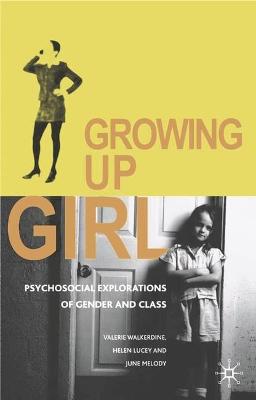Qualitative Studies in Psychology
1 total work
Set against a backdrop of deindustrialisation, rising male unemployment and the feminisation and casualisation of the labour market, Growing Up Girl graphically explores the complexities of gender and class during a period of massive social change. It tells the story of today's 'I can have everything' girls who face unprecedented shifts in the organisation of family, education and work, and yet who continue to struggle with the not always visible but always palpable pressures of wealth, poverty, class and ethnicity.
Drawing on data spanning nearly twenty years, the authors of this ground-breaking study provide a sobering antidote to commonplace platitudes about 'girl power' and a feminine future. They reveal the hidden price of middle class girls' apparently effortless achievements - obsessive hard work, guilt and devastating feelings of inadequacy - and they trace how the labour market cruelly sets material limits on the disappointed hopes and ambitions of working class girls.
Vividly illustrating their arguments with quotations from the research participants, they show how young women's practices of self-invention are regulated both by unconscious processes and real social and economic constraints. Their insistent conclusion is that class is far from dead. Indeed, it is centrally important to our understanding of what it is to be a young woman in today's complex and challenging world.
This important and grippingly written book is essential reading for students and scholars alike in sociology, cultural studies, women's studies, education and psychology. It will also be of interest to anyone else struggling to make sense of the position of women in society today.
Drawing on data spanning nearly twenty years, the authors of this ground-breaking study provide a sobering antidote to commonplace platitudes about 'girl power' and a feminine future. They reveal the hidden price of middle class girls' apparently effortless achievements - obsessive hard work, guilt and devastating feelings of inadequacy - and they trace how the labour market cruelly sets material limits on the disappointed hopes and ambitions of working class girls.
Vividly illustrating their arguments with quotations from the research participants, they show how young women's practices of self-invention are regulated both by unconscious processes and real social and economic constraints. Their insistent conclusion is that class is far from dead. Indeed, it is centrally important to our understanding of what it is to be a young woman in today's complex and challenging world.
This important and grippingly written book is essential reading for students and scholars alike in sociology, cultural studies, women's studies, education and psychology. It will also be of interest to anyone else struggling to make sense of the position of women in society today.
